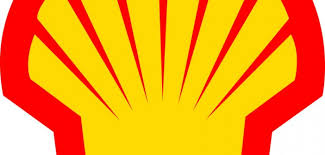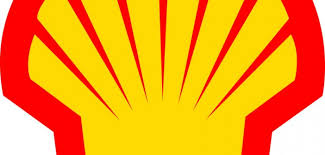
Putting rumors of a spin-off of non-core assets in a "Baby Shell" initial public offering to bed, Shell's plans to sell off assets and pull out of up to ten countries are on track, announced the chief executive of the oil major.
Shell said that it was taking action to deliver on lower costs, lower spending, asset sales and "profitable new projects" on the oil major's capital markets day.
For the 2016-2018 period, the asset sales were confirmed to be expected to total around $30 billion, the company said.
It had "earmarked up to 10 percent of Shell's oil and gas production, including 5 to 10 country exits, for disposal," the company said. There is expectation by Shell to "make significant progress on the first $6-8 billion of this program in 2016."
Dismissing speculation to the contrary, there was plenty of interest in the Shell’s assets from buyers, the company Chief Executive Ben van Beurden told CNBC recently.
"No, I think we have a lot of interest from a very wide universe of buyers which we are engaging with...but the buyers are there. It is a crowded market but I'm not worried. The $30 billion of asset sales is pretty much on the cards and I don't feel we need to have an update on that today," van Beurden said.
While the divestment would be done in a "value-driven rather than a timetable-driven way", he reiterated that the asset sales program was an important part of the company's overall strategy.
Van Beurden dubbed as unfounded the speculations that the group was going to spin off its more mature, non-core assets in a what has been dubbed a "Baby Shell" IPO.
"I think this was something created out of nowhere. I'm not ruling out anything in the longer run of course but it wouldn't do the trick for us. Having an IPO wouldn't really release the value of these assets in a way that helps you in your financial framework," Van Beurden said.
"The preference (for us) is to just to make sure that we take a number of assets that are more attractive for other types of operators...that we concentrate our portfolio on the higher-quality assets that fit our strategy better. So selling is more important than floating," he added.
As the company looks to improve capital efficiency and "ensure a more predictable development funnel for new projects", capital investment would be in the range of $25-$30 billion each year to 2020 in addition to asset sales, the company said.
With a plan to grow free cash flow and returns despite the volatile oil market environment, Shell would respond to a "changing landscape" by "re-shaping" the company, the company said.
The company had the potential to generate 10 percent return on average capital employed (ROACE) around the end of the decade and $20-25 billion organic free cash flow even in a $60 oil price environment, the company said.
While conceding that it was "difficult to predict" the direction of oil prices currently, Van Beurden told CNBC he believed a forecast of $60 a barrel by 2020 was "realistic".
(Source:www.cnbc.com)
Shell said that it was taking action to deliver on lower costs, lower spending, asset sales and "profitable new projects" on the oil major's capital markets day.
For the 2016-2018 period, the asset sales were confirmed to be expected to total around $30 billion, the company said.
It had "earmarked up to 10 percent of Shell's oil and gas production, including 5 to 10 country exits, for disposal," the company said. There is expectation by Shell to "make significant progress on the first $6-8 billion of this program in 2016."
Dismissing speculation to the contrary, there was plenty of interest in the Shell’s assets from buyers, the company Chief Executive Ben van Beurden told CNBC recently.
"No, I think we have a lot of interest from a very wide universe of buyers which we are engaging with...but the buyers are there. It is a crowded market but I'm not worried. The $30 billion of asset sales is pretty much on the cards and I don't feel we need to have an update on that today," van Beurden said.
While the divestment would be done in a "value-driven rather than a timetable-driven way", he reiterated that the asset sales program was an important part of the company's overall strategy.
Van Beurden dubbed as unfounded the speculations that the group was going to spin off its more mature, non-core assets in a what has been dubbed a "Baby Shell" IPO.
"I think this was something created out of nowhere. I'm not ruling out anything in the longer run of course but it wouldn't do the trick for us. Having an IPO wouldn't really release the value of these assets in a way that helps you in your financial framework," Van Beurden said.
"The preference (for us) is to just to make sure that we take a number of assets that are more attractive for other types of operators...that we concentrate our portfolio on the higher-quality assets that fit our strategy better. So selling is more important than floating," he added.
As the company looks to improve capital efficiency and "ensure a more predictable development funnel for new projects", capital investment would be in the range of $25-$30 billion each year to 2020 in addition to asset sales, the company said.
With a plan to grow free cash flow and returns despite the volatile oil market environment, Shell would respond to a "changing landscape" by "re-shaping" the company, the company said.
The company had the potential to generate 10 percent return on average capital employed (ROACE) around the end of the decade and $20-25 billion organic free cash flow even in a $60 oil price environment, the company said.
While conceding that it was "difficult to predict" the direction of oil prices currently, Van Beurden told CNBC he believed a forecast of $60 a barrel by 2020 was "realistic".
(Source:www.cnbc.com)














